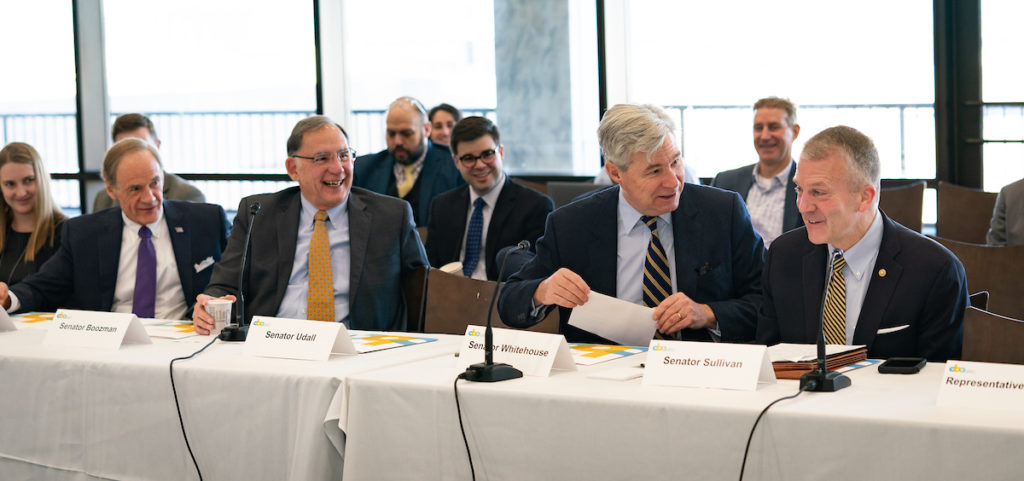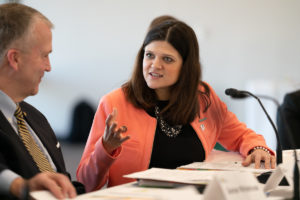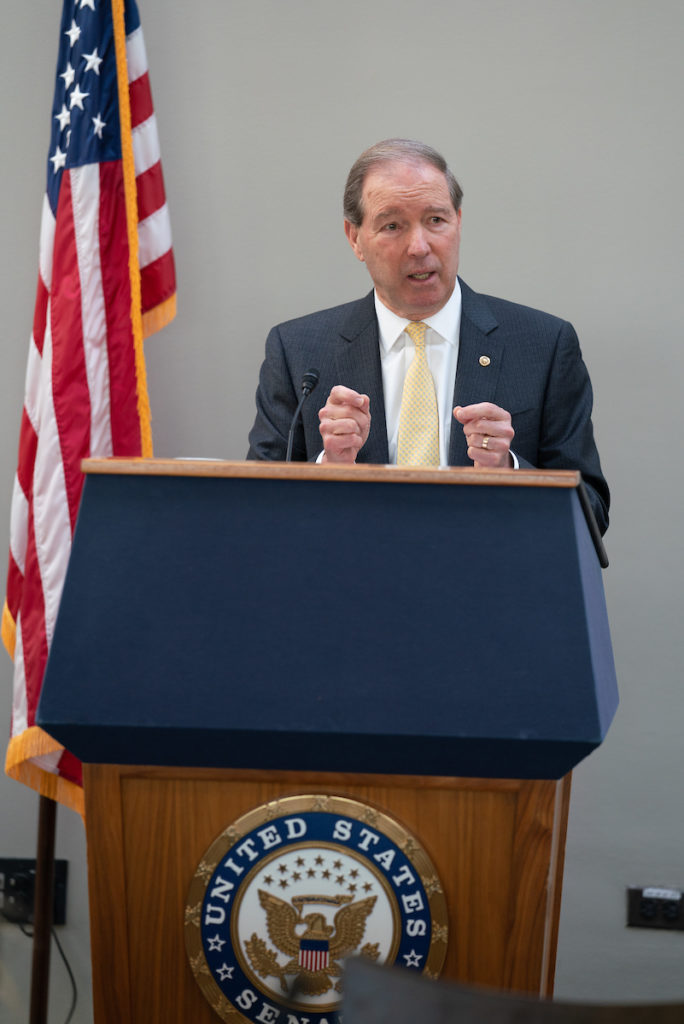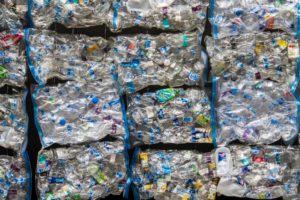
Blog
Congress Joins RLC Discussion on Fixing Recycling in America
Recycling in America is in freefall. Only four percent of consumers say they do not find recycling confusing — the rest find it more confusing than doing their taxes, building Ikea furniture or understanding the opposite sex. Tackling the plastic waste crisis requires consumers be active and educated participants in recycling right, but with nearly 10,000 unique recycling systems and corresponding sets of rules, getting it right will require fundamental changes to how we recycle in America.
Fundamental change was the purpose of the inaugural gathering of the Recycling Leadership Council (RLC), a diverse group of stakeholders from consumer-facing industries, packaging companies and the recycling ecosystem, brought together by the Consumer Brands Association, that believe sweeping change is imperative to fixing recycling in America and integral to the long-term health of the planet.
Consumer Brands Association President and CEO Geoff Freeman convened the meeting with a simple directive: “We have a responsibility to give consumers a roadmap to a system that makes a lot more sense.”
Owning that responsibility was what brought the council to Capitol Hill for its first meeting. Outside the meeting room, the view of the Capitol dome was a visual reminder of the importance of federal government leadership in revolutionizing recycling — something nearly eight-in-ten (77%) Americans want to see.
Inside the room, that leadership was present, giving credence to the importance of the issue. The RLC was joined by: Senate Recycling Caucus leaders Tom Carper (D-DE) and John Boozman (R-AR); Save Our Seas legislation sponsors Senators Sheldon Whitehouse (D-RI) and Dan Sullivan (R-AK); Senator Tom Udall (D-NM) who is drafting “landmark legislation” that he plans to introduce; and Congresswoman Haley Stevens (D-MI-11) who launched the Congressional Plastic Solutions Task Force last year.

Congresswoman Haley Stevens (D-MI) talks with Senator Dan Sullivan (R-AK).
Boozman immediately commented on the Consumer Brands Association bringing together “the who’s who of movers and shakers” based on the organizations in the room. Carper also welcomed the RLC, adding, “We really need your brainpower and leadership.”
The senators’ acknowledgement that the right people to solve problems were assembled aligned with the strong belief that fixing recycling in America is a bipartisan issue. Boozman said, “This is an area where Democrats and Republicans find common ground” and implored the RLC to “help us find the things that we can agree on so we can move them forward.”
Save Our Seas 2.0 just passed unanimously in the Senate, but Whitehouse and Sullivan lamented that no one heard about it because agreement doesn’t drive media coverage. They joked that for the next phase of their legislation they would attack each other (threats of cream pies to the face cannot be confirmed or denied).
Kidding aside, the legislation is the most comprehensive ocean cleanup legislation ever — something Sullivan said they confirmed with the Congressional Research Service — and the Consumer Brands Association was proud to support its passage.
There was little discussion of the problem because everyone in the room is exceedingly familiar with what’s wrong. As Boozman noted, “We don’t have to convince anyone it’s the right thing to do.”

Senator Tom Udall (D-NM) addresses the Recycling Leadership Council.
The focus was on what must be made right. It was clear in the course of conversation that real solutions will require hard conversations where getting alignment will be challenging. Udall acknowledged that the RLC “organizations are important to finding solutions to the plastic crisis we are facing,” but pushed the council to take responsibility for the products and packaging their member companies produce. He also urged the members to focus as much on reducing and reusing as recycling. He shared that the legislation he’s drafting has benefited from hundreds of comments and that he wants to work with the group, but pressed, “I realize there may be components you cannot support, but I would challenge you to really grapple with it and work constructively with us on it.”
The RLC was formed for the grappling Udall spoke about. Individual industries can’t afford to talk to themselves while this problem worsens every day. The RLC wants not just diverse stakeholders but diverse viewpoints. Getting real solutions will require compromise — the kind of compromise where everyone will have to make sacrifices.
Whitehouse made it clear that federal leaders want to leverage the groups in the room but cautioned against taking defensive posture. “Don’t be afraid to give us your ideas,” the senator implored. “My ask to you is that you eschew the Washington habit of having your position align with the most troubled member of your industry. Do not defend the lowest common denominator and bring that to us. Work your groups so they’re bringing their best and strongest policy recommendations to us.”
Good ideas are needed. The national recycling rate is only 35 percent, and even lower for plastic at just eight percent. To meet the recycled content needs of the CPG industry alone, Consumer Brands Association packaging sustainability lead Meghan Stasz said that an 80 percent recycling rate is required. Making it even harder to achieve is the many municipal systems accepting fewer items or backing down from their recycling programs altogether. The Recycling Partnership’s Elizabeth Biser said that by their count, 54 local programs have stopped offering recycling and “that’s 54 too many.”
Stevens summed up the day sharing her thoughts on how we increase recycling: “It’s not by demonizing the consumer, the brand or the municipality. It takes the forging of unlikely holistic alliances.”
Published on January 16, 2020




